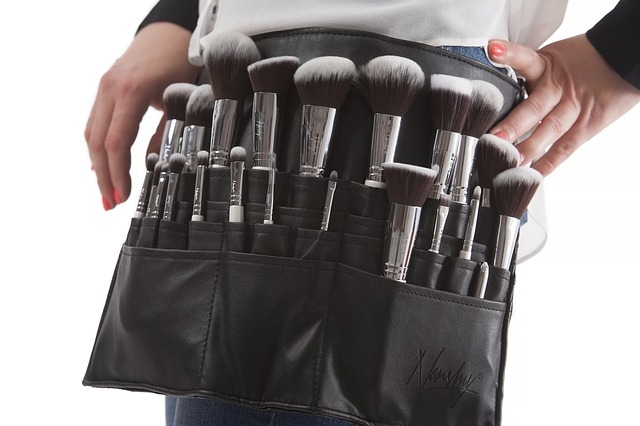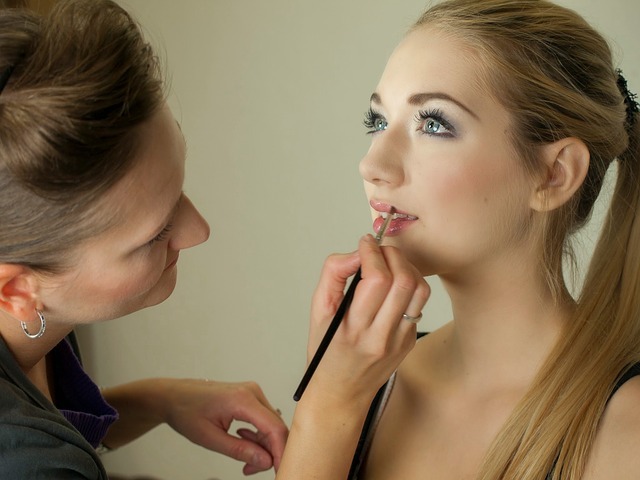Makeup artistry is an important component of cosmetology school. Even if you do not plan to have a career in makeup, as a hair stylist you may at times provide a professional makeup application or makeover for your clients. When clients pay for professional makeup, they expect something better than what they could do themselves. Therefore, it is essential that you learn professional techniques that can only be learned in beauty school, such as the following five.
The Important Tools to Use

One of the most essential tools you learn is how to correctly use brushes
As a makeup artist or cosmetologist, you are only as good as your tools. Therefore, you want to be sure that you have the bare minimum number of professional tools to provide a great makeup look. The basic eight makeup brushes to have in your arsenal are foundation, concealer, fluffy powder, blush, small blending, flat eye shadow, precision angle, and lip. At cosmetology school, you will learn the right techniques for using these brushes, as well as learn the importance of having higher quality brushes.
Matching Makeup with Hairstyles
Whether you are a professional makeup artist or a hair stylist that does makeup on the side, your makeup training in cosmetology school will also include some knowledge of hairstyles. The best looks include complementary hairstyles and makeup to make a person appear at her most attractive, which is why you must learn how to best match makeup with hair, according to Beauty Schools Directory. This essential knowledge assists you whether you plan to do dramatic makeup artistry for films, TV, fashion, or photography, or you just offer professional hair and makeup services for special events, such as weddings or job interviews.
How to Contour to Alter Features

The right makeup can dramatically alter a person’s appearance
When makeup is applied correctly, it can actually change a person’s facial features. At cosmetology school, you learn important contouring techniques, which allow you to manipulate a person’s facial features. Contouring uses highlighting and shading to either emphasize or hide different areas of the face. This can manipulate the face to make it appear different, such as creating a more oval face out of a round one, making a wide nose appear thinner, or changing the shape of someone’s eyes, according to Total Beauty.
Learning to Manipulate the Color Wheel
Everybody has different coloring and undertones, and as a professional makeup artist you need to learn to manipulate the color tone to best complement a person’s natural coloring. Opposite colors on the color wheel tend to complement one another the best. You can also use this information to learn the right colored makeup to cover up blemishes and unwanted appearances, including acne, under eye bags, dark spots, and more. For example, green-pigmented concealer is the best for covering up red blemishes, while an orangey concealer helps with the bluish colors that arise with under eye bags.
Creating Custom Makeup Regimes for Clients

In addition to applying makeup, you will teach your clients how to use it
Many clients who sign up for professional makeovers want to change their look for more than just a day, so they will be looking for advice on how to apply makeup themselves, as well as what makeup to buy. Therefore, you need to learn the various techniques at cosmetology school so that you are an expert that can instruct others in the best techniques to suit their lifestyle. You also need to learn how to develop and describe the perfect makeup regime for your client, including a step-by-step instruction manual if needed. You will also be expected to make recommendations on colors to purchase and tools to use, including makeup brushes.
The makeup education you receive at cosmetology school is an essential component for most cosmetology careers. With advanced training, you will be able to give your clients makeovers, provide special occasion makeup application, and more.
Once you have your cosmetology license, you will need to keep up with continuing education requirements to be able to renew your license. Check out our courses, which are approved by several state licensing boards.
